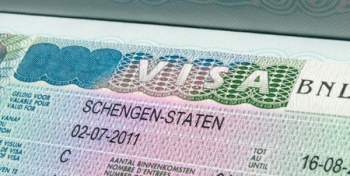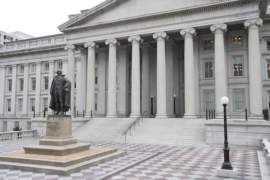
The Guide to the B1 Business Visa

Before arriving in the United States, many visitors must obtain a Visa, to legally abide by the Federal laws associated with immigration and travel. Visas are issued for numerous reasons and delivered based on various situations. If an individual is traveling to the United States to conduct business for a temporary basis, the acquisition of a B1 Visa is mandatory.
All individuals who are visiting the United States
to attend business meetings, trade shows, conferences, or to complete
professional research, must acquire a B1 Visa. B1 Visas, also known as
the Visitor Business Visa, is mandatory for all individuals traveling to
the United States to administer some form of business activity. In
addition under specialized circumstances, investors, salespeople, and
even professional athletes are required to apply for a B1 Visa.
The
United States Federal Government will issue a B-1 Visa to allow a
foreign national entry into the United States for a temporary
business-related stay. In order to meet with American business
associates or finalize a business transaction in the United States one
must fulfill the obligation of B-1 Visas established by the Department
of State's eligibility requirements.
As a result of the B-1 Visas
classification as a business document, an individual to obtain a B-1
Visa, must clearly demonstrate to a United State's immigration officer
that the reason for travel to the United States is unequivocally
business related. If the reason given, does not meet the eligibility
requirements instituted by the State Department, the U.S. immigration
officer will undoubtedly deny the applicants request for a B-1 Visa.
Some
primary examples that warrant an issuance of a B-1 visa would include:
visiting the United States to attend a mandatory business conference,
training seminar, meeting, or workshop. In addition, a B-1 Visa will
also be granted for, developing a business relationship with an American
company, fortifying a business transaction, and purchasing capital
goods or assets for investment purposes.
As is common with all
non-immigrant visas, an applicant for a B-1 visa must have compelling
social and economic ties abroad. In essence, the applicant must be
established overseas, to impede the general assumption that the
individual is planning to immigrate to the United States illegally. As a
result of this classic obstruction associated with non-immigrant visas,
the applicant must provide documented proof or financial resource to
obfuscate the general notion that the individual is planning on
obtaining a B-1 visa for illegal immigration purposes. Examples of
acceptable documents to prove the presence of financial resources
include: copies of bank statements, an income report, and a letter from
your sponsored company backing the purpose of the trip.
Because a
B-1 visa is a non-immigrant visa, the holder of the B-1 visa must show
the coordinating U.S. immigration officer that the intended purpose of
the visit is temporary. In accordance with Federal law, an immigration
officer must disqualify B-1 visas if the holder demonstrates an explicit
intent to prolong their stay in the United States beyond the
distributed grace period outlined in the B-1 Visa. For example, if the
holder of the B-1 Visa is attending a business meeting, the individual
must demonstrate to the immigration officer that they plan on leaving
the United States upon completion of the business meeting.
NEXT: European Visa





















